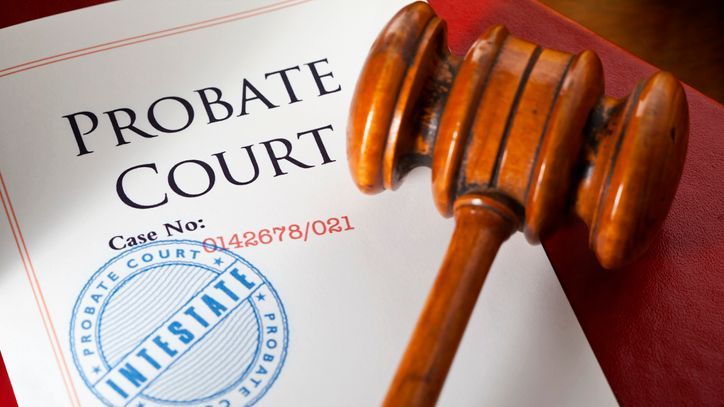Probate is a legal process that deals with the assets and debts left behind after someone dies. Though necessary in some cases, it can be time-consuming, expensive and emotionally draining for the loved ones of the person who died. For these reasons, many people seek strategies to avoid probate. In Colorado, there are several legal methods available that can help you bypass the probate process, including creating a living trust, owning property jointly, designating beneficiaries and filing a small estate affidavit.
A financial advisor with estate planning expertise can help you make a plan for your assets and potentially avoid probate.
Probate in Colorado
Probate is a court-administered process that occurs after someone passes away. It involves validating the deceased person’s will in court, identifying and appraising their assets, settling debts and taxes, and finally, distributing the remaining assets according to the will or state law if there’s no will.
But probate can be time-consuming, costly and public (meaning your estate plan and the value of your assets become a matter of public record). Probate takes a minimum of six months to complete in Colorado, according to the Denver Bar Association.
There are two primary types of probate in the Rocky Mountain State: Informal and formal.
- Formal probate: This more structured and court-supervised process is typically required when there are disputes or concerns about the estate’s administration. The court plays a more active role in overseeing the proceedings, ensuring that all legal requirements are met. This process can be more time-consuming and expensive due to legal fees and court involvement.
- Informal probate: This is a simplified and less expensive option. It is suitable for cases where the estate is straightforward, and there are no disputes. In an informal probate, the court’s involvement is minimal, and the executor or personal representative can handle most matters independently.
However, not all estates in Colorado are subject to probate. Smaller estates that only contain personal property and no real estate can automatically bypass probate by simply filing a certain type of affidavit with the county clerk.
How to Avoid Probate in Colorado

Avoiding probate in Colorado is entirely possible. Strategies such as creating a living trust, establishing joint ownership of property, setting up payable-on-death and transfer-on-death designations, and using a small estate affidavit can be employed.
These methods offer a path to potentially avoid the probate process completely, expediting the distribution of assets to beneficiaries. In the following sections, we will provide a brief overview of each method before delving into the details.
Living Trusts
Also known as a revocable trust, a living trust is a legal entity created during one’s lifetime to hold ownership of assets. When a person dies, the successor trustee ensures that the trust assets are transferred to the designated beneficiaries.
One significant advantage of a living trust is privacy. Details of assets and their designated beneficiaries are kept private, unlike a will, which becomes a public record once filed in probate court.
Keep in mind that you’ll still want a will, even if you create a living trust. A will can do things that a trust cannot, including designating a guardian for minor children. A will can also lay out how property that’s not included in the trust should be distributed when you’re gone.
Joint Ownership
Suppose you and your spouse own a lovely mountain cabin in Colorado. When one of you dies, you want the property to automatically pass to the surviving spouse without delay or legal complications. This is where joint ownership comes into play.
In Colorado, joint ownership can be set up as a joint tenancy or as a tenancy in common. The key difference between these two is that in a joint tenancy with the right of survivorship, the surviving owner(s) automatically take control of property when the other owner dies, bypassing probate. This is not the case with tenancy in common.
Payable-on-Death Designation
A payable-on-death (POD) designation is a simple and effective way to avoid probate in Colorado. It allows you to designate beneficiaries who will automatically receive assets upon your death, bypassing the probate process.
This designation, commonly used with bank accounts and certificates of deposit, is a bit like having a “beneficiary in waiting.” Upon your death, the POD beneficiary can claim the money directly from the bank without probate court proceedings.
Transfer-on-Death Deed
A transfer-on-death (TOD) deed is like a payable-on-death designation, but it’s used for real estate. Much like a POD, a TOD allows the owner of an asset to name a beneficiary who will inherit the asset directly upon the owner’s death, without going through probate. Setting up a TOD designation in Colorado involves completing and signing a TOD deed, getting it notarized and filing it with the county clerk.
Small Estate Affidavit
Consider a scenario where a young, unmarried individual with few possessions passes away. The value of their estate is small, and they did not own any real property. In such a case, a small estate affidavit could be an appropriate method to avoid probate. This legal document is used to distribute assets of a deceased person with a small estate, bypassing the probate process.
In Colorado, an estate is considered small if it’s worth no more than a set amount that’s adjusted each year for inflation. In 2025, estates worth up to $86,000 could qualify for this exemption.
Eligibility to submit a small estate affidavit in Colorado also requires waiting 10 days after the person’s death, filling out what’s called the Affidavit for Collection of Personal Property and submitting it to the holder of property along with a copy of the death certificate.
Bottom Line

The probate process in Colorado can be avoided through various strategies such as the use of living trusts, joint ownership arrangements, payable-on-death and transfer-on-death designations, as well as the small estate affidavit. It’s important to remember that these strategies do not universally guarantee success, as individual circumstances can significantly impact their efficiency.
Estate Planning Tips
- Large estates worth more than $13.99 million in 2025 and $15 million in 2026 are typically subject to the federal estate tax, which can range up to 40%. Transferring assets to an irrevocable trust is one way to potentially reduce or eliminate one’s estate tax liability. However, giving assets away during your lifetime is another way you can reduce the size of your estate below the estate tax exemption threshold and sidestep the tax altogether.
- A financial advisor with estate planning expertise can help you navigate this complex, but crucial process. Finding a financial advisor doesn’t have to be hard. SmartAsset’s free tool matches you with vetted financial advisors who serve your area, and you can have a free introductory call with your advisor matches to decide which one you feel is right for you. If you’re ready to find an advisor who can help you achieve your financial goals, get started now.
Photo credit: ©iStock.com/MargaretW, ©iStock.com/stocknshares, ©iStock.com/ilkercelik
